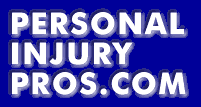Slip and Fall Accidents
When
it comes to slip and fall accidents, visions of a person slipping and
falling on a banana peel come to mind. However, slip and fall accidents normally
result from a variety of conditions including uneven floors or sidewalks, a
slippery floor condition (such as a spill in a grocery store), unseen
obstacles lying on the ground, and even inadequate lighting.
Everyone
should be responsible and use care when walking on someone else’s
property. However, property and business owners must also take care to
ensure that foreign objects or obstacles aren’t in pedestrians’ paths.
The
question asked is: “Would a reasonable property owner have seen the problem
and then removed it or warned individuals about it?” If the answer is
yes and the owner failed to take action, he or she may be held liable
if an injury occurs due to a slip and fall. Generally a property owner
is not liable simply because a person falls on the premises. To be liable,
the property owner must have created or known of the dangerous condition
and then not taken steps to correct the problem in a reasonable amount
of time. For example, if a spill occurred moments before a customer entered
a store, employees probably would not have had enough time to discover
and clean up the spill. In this situation, proving liability may be difficult.
Natural conditions, such as snow or ice, may cause liability for owners who fail to remove these conditions from their property within a reasonable amount of time. Tenants of a building can also be held liable for injuries in cases where they were responsible for removing these conditions and failed to do so.
Comparative negligence
is almost always a defense in these cases. Should the plaintiff have been
watching where he or she was going more carefully? Victims may be unable
to receive damages if a reasonable person in similar circumstances should
have known about the danger and tried to avoid it. If the plaintiff is
more negligent than the defendant property owner, the property owner is
not responsible.
Do I Owe A Trespasser The Same Amount Of Care As I
Do An Invited Guest?
In
Pennsylvania personal injury law there are three groups of individuals
– licensees, invitees and trespassers. Owners owe each group different
degrees of care.
Invitees
Invitees
enter the property at the express or implied invitation of the owner.
Individuals who visit a business are commonly invitees. People using public
parks or those visiting public places such as hospitals or businesses
are also considered invitees. Owners owe the greatest degree of care to
this group and they may be held to have a duty to inspect their property
for dangerous conditions to protect invitees from harm.
Licensees
A
licensee enters the owner's property with the permission of the owner. Family
members and friends fit into this category. Owners do not owe extra care to
licensees. If owners are aware of a dangerous condition on their property,
they must inform the individual of the condition. Liability is created when
owners fail to mention a potentially dangerous condition or fail to take
steps to protect licensees from the danger and he or she becomes injured.
Trespassers
Trespassers enter without permission. This group has no right to be on the property and the owner has a lower standard of care. However, property owners cannot permit a dangerous condition to exist to recklessly endanger a trespasser.
Children are the exception to laws regarding trespassers. They often wander into areas where they don’t belong, so owners must take extra care to clean up potentially dangerous situations. Safety measures such as gates, guards, alarms, fences and signs can help to reduce liability.
For a free consultation call
or e-mail us today at
dan@personalinjurypros.com
CASE EXAMPLE
© 2011-2016. All Rights Reserved.
